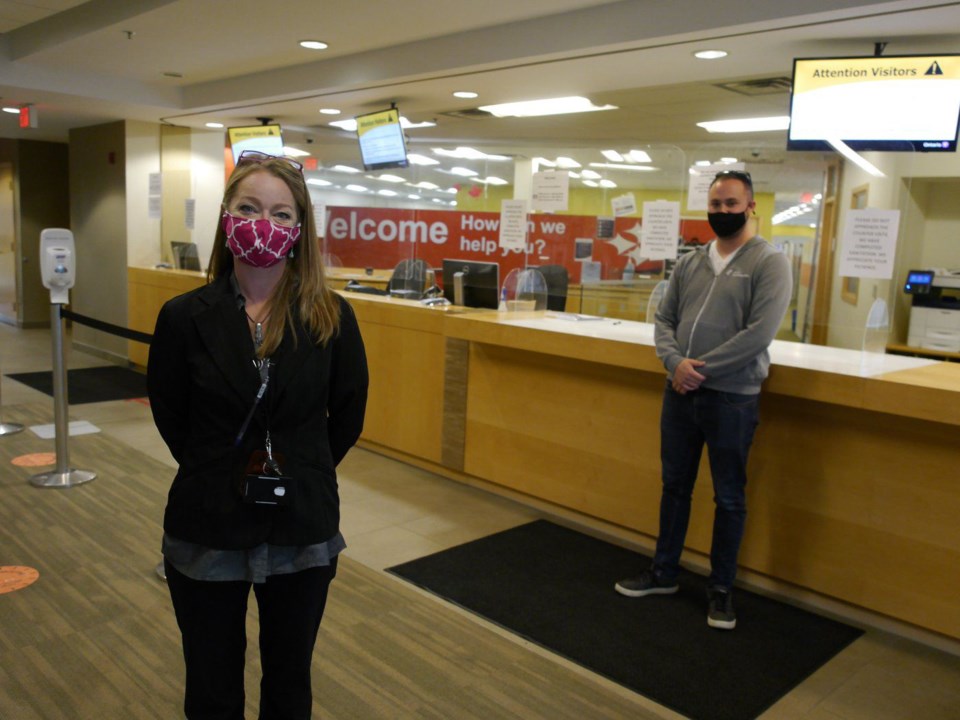The COVID-19 pandemic required the Town of Innisfil to quickly embrace digital customer service offerings and remote working, and depending on what the data shows, they could be here to stay.
Having already invested in many digital services before the pandemic struck, the move to digital services and remote working went well for the town, said customer service supervisor Lisa Biegel.
“It was actually fairly seamless, to be quite honest with you,” Biegel said. “We did not have any disruption in our service.”
Town hall reopened to the public on July 20, but data shows that residents continued to use digital services that were made available to them.
In September, in-person inquiries were down 68 per cent year-over-year, with digital inquiries up 159 per cent.
While there is a customer-service presence at town hall, many town staff continue to work remotely, as recommended by the Simcoe Muskoka District Health Unit (SMDHU).
According to an internal survey, remote working seems to be working well for most town employees that are able to do it.
“Ninety per cent felt they were either as or more productive at home or remotely,” said Brennan Kenny, economic development champion with the Town of Innisfil.
Those numbers have some at the town considering a remote approach to work beyond the pandemic.
“Sustaining the pre-pandemic levels of productivity while in a remote environment to me says that it's a viable option,” Kenny said.
When the SMDHU eventually gives the all-clear to return to business as usual, town staff will report back to council with a report that will consider continuing the remote-first approach that started during the pandemic.
Remote first would still see staff attend the office regularly, but their primary work environment would be remote. Kenny said the idea could present several benefits to the municipality including cost savings, the ability to attract high-caliber staff, reduced absenteeism and reduced environmental impacts.
“The key here is flexibility and choice, and it's an opportunity for people to decide how they want to be served by the local government,” Kenny said. “We’re always going to keep that in-person service, it's critical.”
At the Innisfil ideaLAB and Library, acting CEO Susan Baues said the move to more digital services presents challenges for a community hub that was focused on welcoming people inside. Now the library is operating on a grab-and-go model, but staff continue to reimagine the services they offer.
“It's a balancing act,” Baues said.
While the digital collection also saw an increase in use, Baues said the library is looking at more services to meet people who can’t access that, such as a homebound delivery service. She said the library can also play a role in getting people online and educated if they don’t have that option at home.
“That's a huge issue, right, so we've been thinking about mobile outreach – can we bring the connectivity to that person?” she said. “I think the pandemic has highlighted the importance of the digital literacy and that we need to make sure that we don't leave anyone behind.”
Shane MacDonald, Local Journalism Initiative Reporter, Barrie Advance



